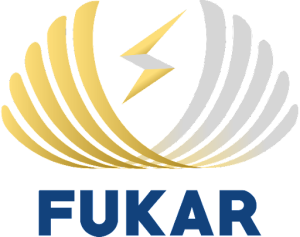Anti Corrosion Coating For Manufacturers
In the manufacturing sector, the longevity and reliability of tools and equipment are critical to maintaining productivity and reducing operational costs. Wear and tear from continuous use, exposure to harsh environments, and friction between moving parts can significantly shorten the service life of manufacturing tools such as cutting tools, dies, and fasteners. Advanced metal surface protection methods, particularly those offered by Fukar, play a vital role in enhancing the wear resistance and durability of these essential components.

Wear Resistance in Manufacturing
Manufacturing tools are subjected to intense mechanical stress, repetitive motion, and abrasive environments. Over time, these factors lead to surface degradation, loss of precision, and ultimately, tool failure. Enhancing wear resistance is not just about extending the lifespan of tools; it’s about ensuring consistent product quality, minimizing downtime, and optimizing overall production efficiency
A Proven Solution for Tool Longevity
Electroplating is one of the most effective methods for improving the wear resistance of manufacturing tools. By depositing a layer of hard metal, such as chromium, nickel, or zinc, onto the surface of tools, electroplating significantly increases hardness, reduces friction, and protects against corrosion. For instance, cutting tools, drills, and dies electroplated with hard metals exhibit enhanced durability and superior cutting performance, resulting in longer service intervals and reduced replacement costs.
In automotive and industrial manufacturing, electroplated coatings on gears, brake parts, and fasteners help reduce friction and wear, ensuring the longevity and reliability of critical components. The uniformity and precision of electroplated coatings also contribute to maintaining tight tolerances and high-quality finishes required in modern manufacturing processes.
Uniform Protection for Complex Geometries
Electroless nickel plating is another advanced surface treatment that offers exceptional wear and corrosion resistance. Unlike traditional electroplating, this autocatalytic process does not require an external electric current, resulting in a uniform coating even on complex shapes and internal surfaces. The nickel-phosphorus layer provides a hard, reflective finish that shields tools and components from abrasion, scratches, and chemical attack.
This method is particularly advantageous for manufacturing molds, dies, and rollers, where consistent protection across intricate surfaces is essential. Electroless nickel plating also eliminates the need for post-machining when dimensional accuracy is critical, further streamlining the production process.
Enhanced Durability for Aluminum Components
For aluminum tools and parts, hard coat anodising offers a robust solution to improve surface hardness and wear resistance. This electrochemical process creates a thick, durable oxide layer that can withstand years of abrasive use, making it ideal for applications where both strength and lightweight properties are required. Hard coat anodised surfaces also exhibit excellent resistance to corrosion and can be sealed for additional protection, ensuring long-term performance in demanding environments
Fukar’s Expertise in Surface Protection
Fukar’s comprehensive range of metal surface protection services-including Xylan, Xylar, zinc, nickel plating, electroless nickel, and anodising-are tailored to meet the rigorous demands of the manufacturing sector. These advanced coatings not only extend the lifespan of tools and equipment but also enhance performance by reducing friction, improving heat resistance, and maintaining dimensional stability under stress.
With internationally recognized certifications such as ISO 9001:2015 and PPG QAC, Fukar ensures that every coating process meets the highest standards of quality and reliability, giving manufacturers confidence in the durability and efficiency of their tools
How we can help
Fukar delivers advanced electroplating and metal coating solutions, including Xylan, Xylar, zinc, nickel, and anodising, to enhance durability, corrosion resistance, and aesthetics for global industrial applications
Enquire about our services
